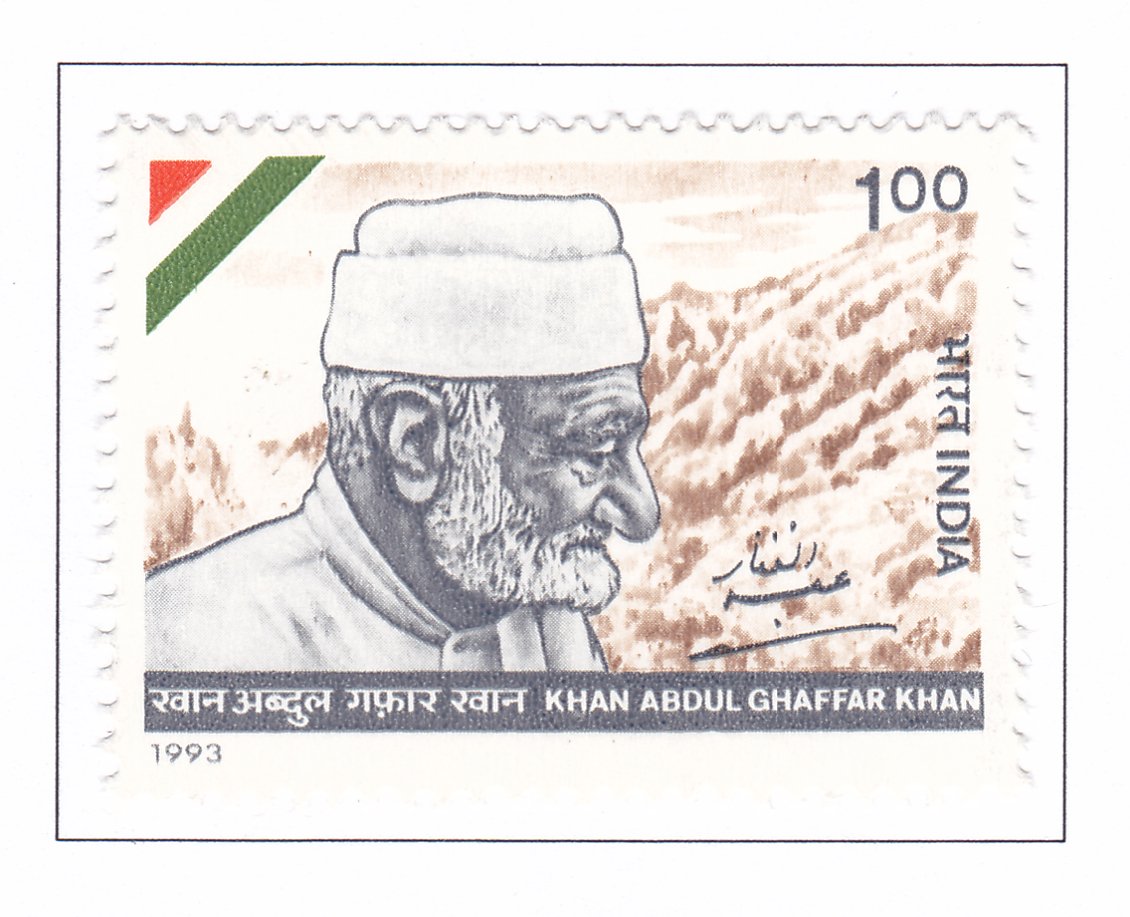Khan Abdul Ghaffar Khan

Technical Data
| Date of Issue | August 9, 1993 |
|---|---|
| Denomination | Rs. 1 |
| Quantity | 600,000 |
| Perforation | comb 13½ x 13 |
| Printer | Security Printing Press, Nashik |
| Watermark | No Watermark |
| Colors | Multicolor |
| Catalog Codes |
Michel IN 1394 Stamp Number IN 1467 Yvert et Tellier IN 1192 Stanley Gibbons IN 1544 |
| Themes | Commemoration | Famous people | Headgear | Men | Mountains |
Table of Contents
Abdul Ghaffar Khan: A Profile
Early Life and Background
- Birth and Family: Born in 1890 in the village of Uttamanzai, Charsadda tehsil, Peshawar district, in the North West Frontier Province (now Khyber Pakhtunkhwa, Pakistan). He was a member of the leading Mohamadzai Pathan tribe.
- Character and Beliefs: Known for his great courage and simple habits. A devout Muslim, he held equal regard for all religions.
Political Involvement and Influence
- Association with Indian Nationalists: His close association with Mahatma Gandhi, Jawaharlal Nehru, Maulana Azad, and other prominent Indian nationalists greatly influenced his political outlook.
- Non-Violence and Independence Movement: Inspired by Mahatma Gandhi’s principles of non-violence, Abdul Ghaffar Khan became a staunch advocate for non-violent resistance against British colonial rule. He played a crucial role in the Indian independence movement.
Key Contributions and Legacy
- Khilafat Movement: Actively participated in the Khilafat Movement, which sought to protect the Ottoman Caliphate and resist British imperialism.
- Khudai Khidmatgar Movement: Founded the Khudai Khidmatgar (Servants of God) movement, also known as the “Red Shirts,” which promoted non-violent resistance and social reform among the Pashtun community.
- Post-Independence: Continued to advocate for peace, non-violence, and the rights of the Pashtun people after the partition of India and the creation of Pakistan.
Personal Qualities and Values
- Courage and Simplicity: Renowned for his personal bravery and straightforward lifestyle.
- Religious Tolerance: Despite being a devout Muslim, he had profound respect for all religions, promoting interfaith harmony and understanding.
Commemoration and Recognition
- Legacy: Abdul Ghaffar Khan, also known as “Frontier Gandhi,” is remembered for his unwavering commitment to non-violence, social justice, and communal harmony. His legacy continues to inspire movements for peace and justice worldwide.
Example of a Commemorative Text
Abdul Ghaffar Khan: Frontier Gandhi
“Abdul Ghaffar Khan, born in 1890 in Uttamanzai, Peshawar district, was a prominent leader from the Mohamadzai Pathan tribe. A man of great courage and simple habits, he was a devout Muslim who respected all religions. His political outlook was profoundly shaped by his close association with Mahatma Gandhi, Jawaharlal Nehru, and other top-ranking Indian nationalists. Known as ‘Frontier Gandhi,’ he championed non-violence and played a key role in the Indian independence movement through his Khudai Khidmatgar movement. His legacy of peace and communal harmony continues to inspire people worldwide.”
